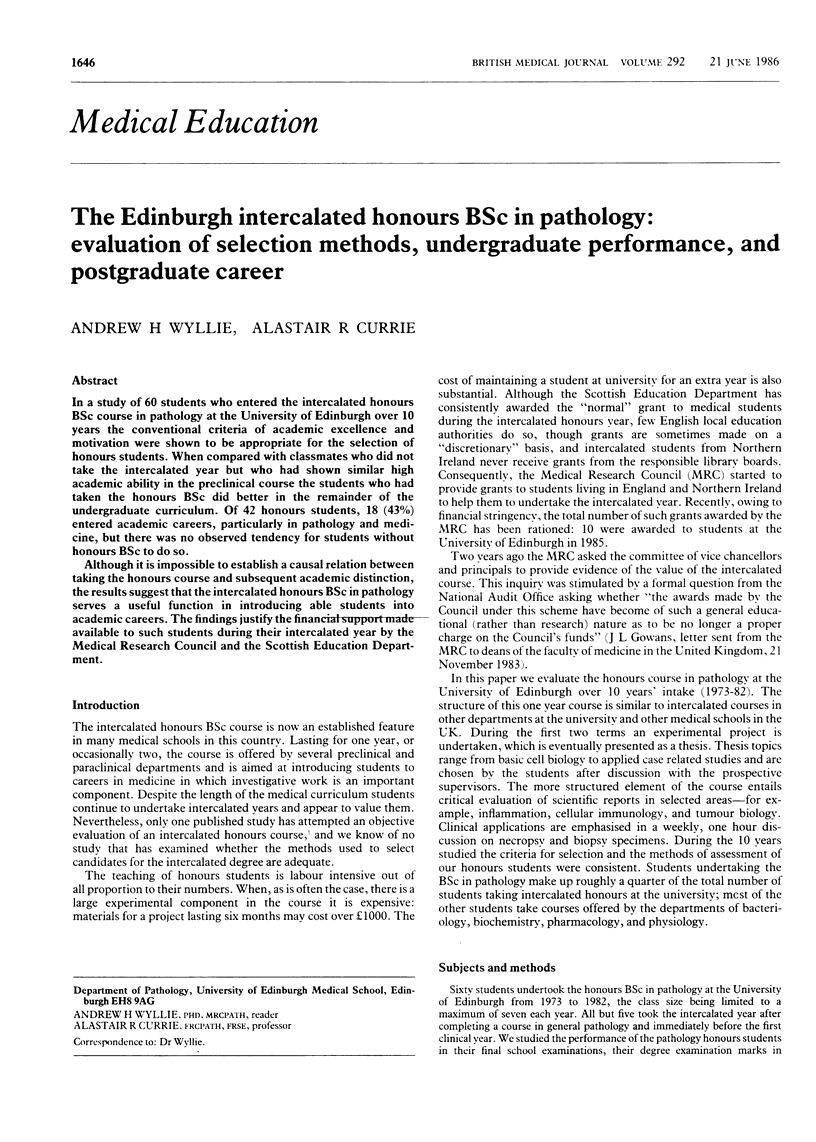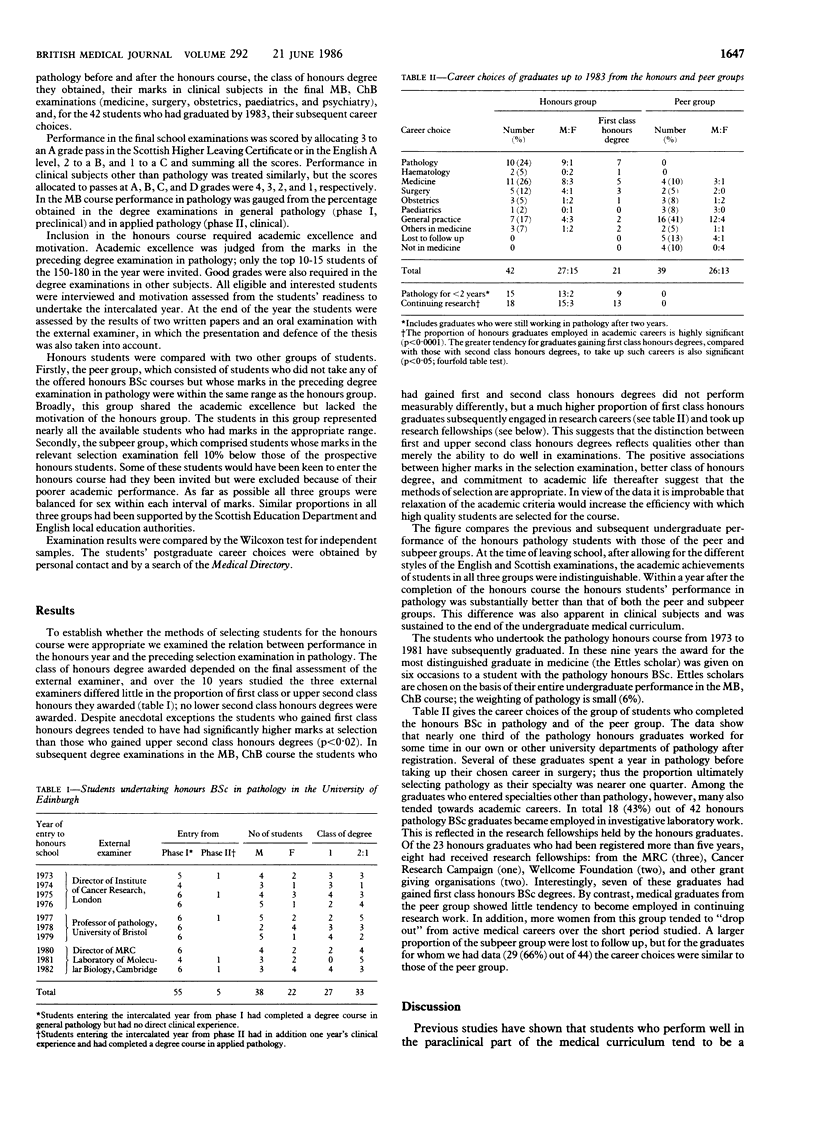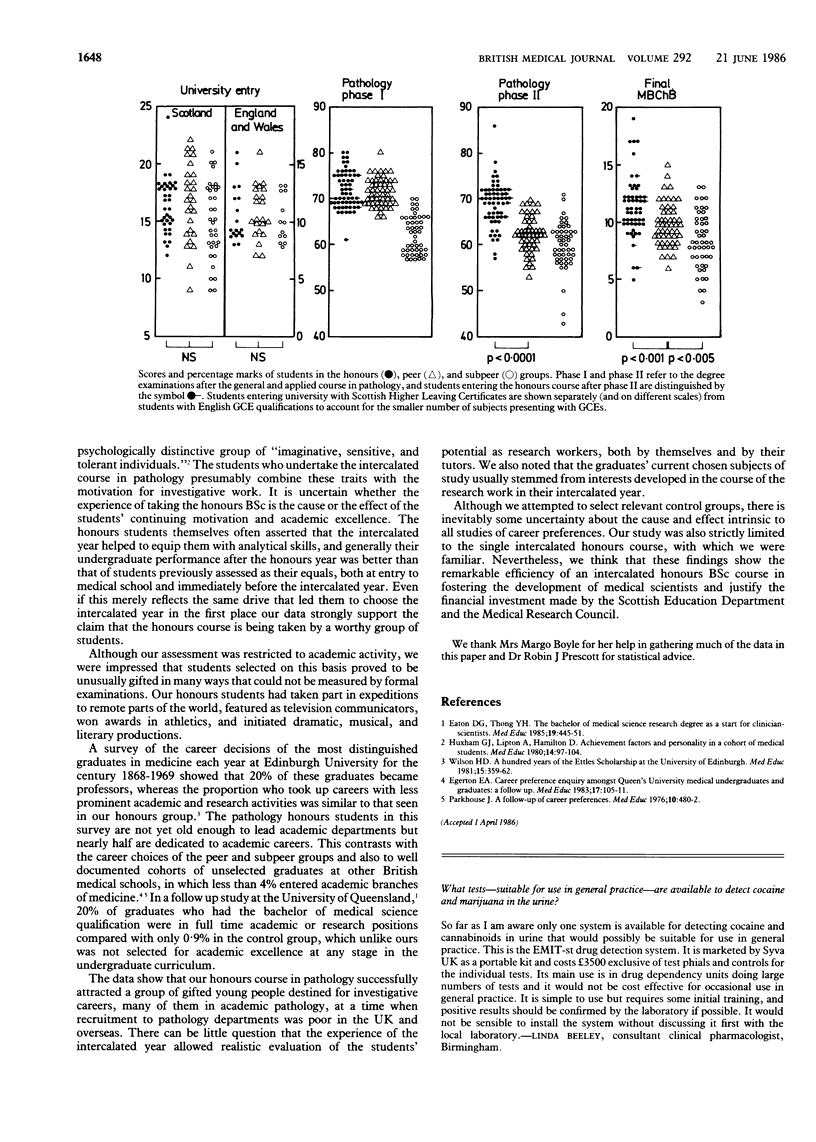Abstract
In a study of 60 students who entered the intercalated honours BSc course in pathology at the University of Edinburgh over 10 years the conventional criteria of academic excellence and motivation were shown to be appropriate for the selection of honours students. When compared with classmates who did not take the intercalated year but who had shown similar high academic ability in the preclinical course the students who had taken the honours BSc did better in the remainder of the undergraduate curriculum. Of 42 honours students, 18 (43%) entered academic careers, particularly in pathology and medicine, but there was no observed tendency for students without honours BSc to do so. Although it is impossible to establish a causal relation between taking the honours course and subsequent academic distinction, the results suggest that the intercalated honours BSc in pathology serves a useful function in introducing able students into academic careers. The findings justify the financial support made available to such students during their intercalated year by the Medical Research Council and the Scottish Education Department.
Full text
PDF


Selected References
These references are in PubMed. This may not be the complete list of references from this article.
- Eaton D. G., Thong Y. H. The Bachelor of Medical Science research degree as a start for clinician-scientists. Med Educ. 1985 Nov;19(6):445–451. doi: 10.1111/j.1365-2923.1985.tb01352.x. [DOI] [PubMed] [Google Scholar]
- Egerton E. A. Career preference enquiry among Queen's University medical undergraduates and graduates: a follow-up. Med Educ. 1983 Mar;17(2):105–111. doi: 10.1111/j.1365-2923.1983.tb01109.x. [DOI] [PubMed] [Google Scholar]
- Huxham G. J., Lipton A., Hamilton D. Achievement factors and personality in a cohort of medical students. Med Educ. 1980 Mar;14(2):97–104. doi: 10.1111/j.1365-2923.1980.tb02620.x. [DOI] [PubMed] [Google Scholar]
- Parkhouse J. A follow-up of career preferences. Med Educ. 1976 Nov;10(6):480–482. doi: 10.1111/j.1365-2923.1976.tb00477.x. [DOI] [PubMed] [Google Scholar]
- Wilson H. D. A hundred years of the Ettles scholarship at the University of Edinburgh or "Whatever happened to the likely lads (and lasses)?". Med Educ. 1981 Nov;15(6):359–362. doi: 10.1111/j.1365-2923.1981.tb02414.x. [DOI] [PubMed] [Google Scholar]


